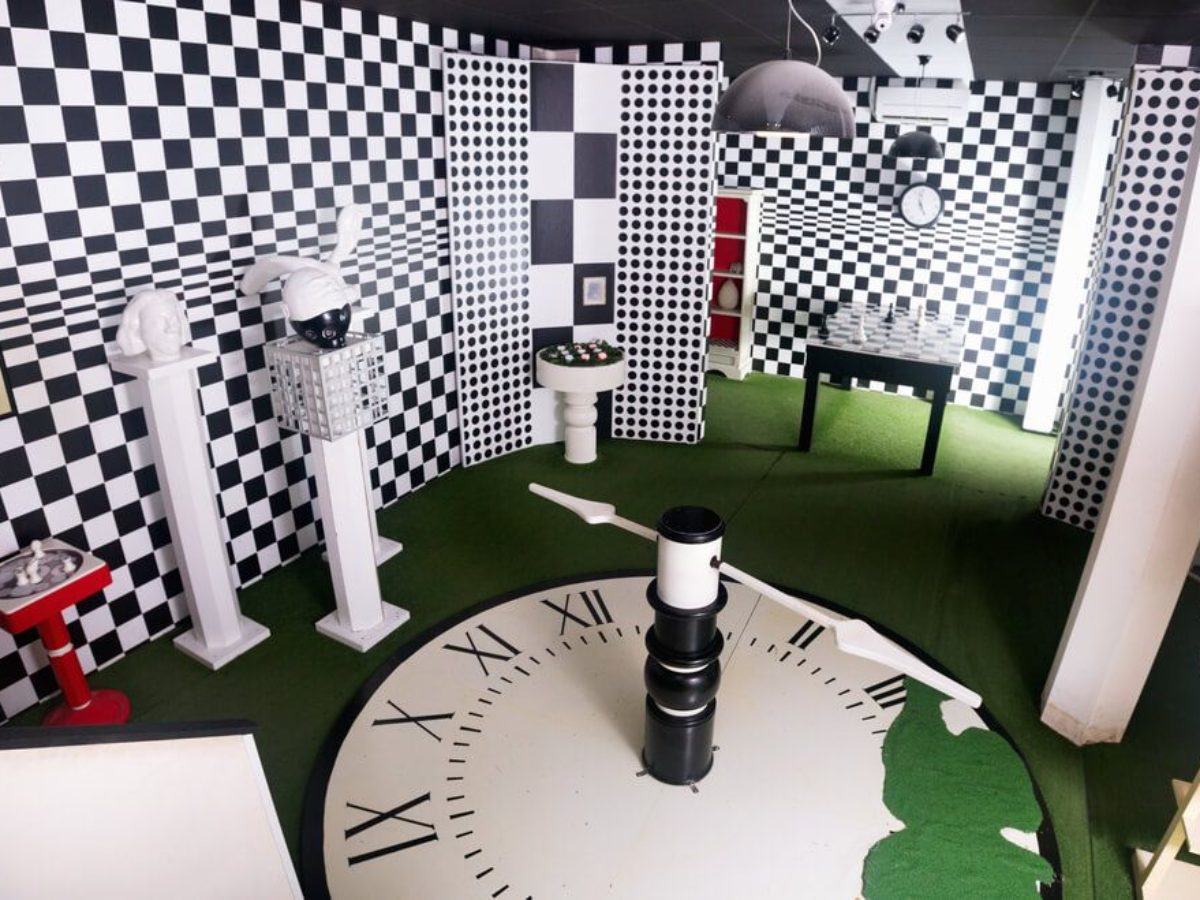Enjoyable and Challenging Escape Room-- Strategy Your Next Adventure
Enjoyable and Challenging Escape Room-- Strategy Your Next Adventure
Blog Article
Group Strategies: How to Collaborate Effectively in an Escape Space
Browsing the complexities of an escape room demands even more than mere interest; it calls for a well-coordinated strategy based in clear communication, strategic role assignments, and proficient time management. Teams must proactively pay attention per member's understandings, designate functions that straighten with specific strengths, and maintain regular check-ins to guarantee focus and protect against redundancy. By cultivating a setting that values cohesion and versatility, groups can dramatically heighten their performance and success prices. The subtleties of these methods can transform the experience, yet how precisely can they be implemented to take full advantage of the potential for success?
Establish Clear Communication

To assist in clear interaction, it is essential to assign a central point of contact for details circulation. Quick, focused updates from each team participant can keep the group notified without frustrating them with information.

Assign Duties Tactically
While clear interaction sets the structure for efficient team effort, designating functions purposefully ensures that each employee's toughness are made use of properly. In a getaway area circumstance, the time-sensitive and complex nature of challenges necessitates an efficient technique to task delegation. By identifying and leveraging specific expertises, groups can maximize their analytic abilities and enhance total efficiency.
Somebody with a keen eye for information may stand out in finding surprise items, while a logical thinker could be much better suited to resolving challenges. This role usually calls for solid business and interpersonal skills.
2nd, ensure that functions are adaptable and adaptable. As new difficulties emerge, the team has to be able to pivot, reallocating tasks as needed. This flexibility aids keep energy and avoids traffic jams that could happen as a result of rigid function jobs.
Ultimately, a critical approach to duty assignment not only makes the most of the strengths of each group member however also fosters a natural environment, driving the group towards an effective escape.
Use Diverse Skills
Acknowledging and harnessing the diverse abilities within your team can dramatically raise your performance in a retreat area. Each employee brings one-of-a-kind toughness to the table, and efficiently leveraging these capacities can accelerate analytic and boost overall effectiveness. For instance, a group participant with solid analytical skills may stand out at deciphering intricate codes or patterns, while another with keen empirical capabilities might rapidly spot hidden clues that might overlook.
Motivate team members to voice their insights and ideas promptly, guaranteeing that all possible services are taken into consideration. In addition, designating jobs that straighten with each participant's staminas can avoid traffic jams and make sure that development is continual.
Furthermore, variety in skills frequently equates to variety in thinking styles, which is important in a retreat space setting. While some obstacles may call for rational thinking and accuracy, others may gain from imaginative and lateral thinking. By identifying and leveraging this diversity, groups can address a wider variety of obstacles extra efficiently, view it thus raising their possibilities of a successful getaway.
Manage Time Properly

First, allocate preliminary minutes for a fast study of the area. Recognize visible problems and separate tasks based upon staff member' staminas, making certain that no one is still. Establish internal time checkpoints to review development periodically; as an example, purpose to have half the puzzles addressed by the mid-point of the game. This practice can assist keep the group concentrated and stop time from sliding away unnoticed.
In addition, avoid passage vision. If a puzzle is taking also long, rotate staff member or proceed to an additional difficulty, returning later with fresh perspectives. Communication is extremely important-- maintain everybody upgraded on resolved problems and remaining jobs to stay clear of redundant initiatives.
Finally, make use of any type of hints or clues moderately yet strategically - best escape room. Understanding when to request help can conserve useful time. By sticking to these time management principles, teams can dramatically improve their possibilities of an effective Read Full Report and enjoyable retreat space experience
Debrief and Show
Reflection is a vital facet of group development and enhancement in the context of escape spaces. Once the obstacle is completed, whether successfully or not, it is essential for the group to involve in an organized debriefing session. This procedure allows staff member to assess their performance, determine strengths, and determine areas for enhancement.
Begin the debrief by discussing what went well. Highlight particular circumstances of efficient communication, problem-solving, and partnership. Acknowledging these positive behaviors reinforces them and motivates their rep in future challenges.
Discuss minutes of confusion, miscommunication, or ineffective techniques. Urge an open and constructive discussion where team members can share their point of views without anxiety of objection.
Conclusion
In conclusion, effective cooperation in a getaway area is predicated upon clear check these guys out communication, calculated duty tasks, the effective usage of diverse skills, and skilled time management. By creating a natural and adaptive team atmosphere, the chance of successfully fixing puzzles and attaining the purpose of leaving the space is substantially improved.
Report this page